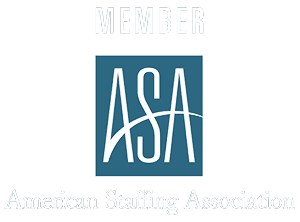For every hour spent finding top talent, how many more are lost to tracking timesheets, taxes, and compliance rules? If you run a staffing firm, you already know the answer is too many.
Payroll may seem like just a back-office task, but it has real, front-line impact. Manual data entry, tight deadlines, and the risk of misclassifying workers can lead to lost time, fines, and damaged trust. Even small mistakes can cause big problems.
That’s why more staffing firms are changing how they think about payroll. It’s not just a routine task; it’s a chance to work smarter. Outsourcing payroll doesn’t just lower costs. It helps you save time, improve accuracy, lower risk, and focus on your core business with confidence. In staffing, where speed and trust matter most, the right payroll partner can make all the difference.
Why Payroll Management is a Drain
While payroll may not be the flashiest part of your business, it’s often the most demanding. Manual timesheet entries, tax calculations, and the added complexity of multi-state payrolls across varying client sites and worker classifications hog your resources. In fact, in-house payroll management cost firms about six weeks of productivity when compared to those who outsource.¹
This administrative burden impacts productivity. Instead of sourcing candidates or closing placements, recruiters often find themselves troubleshooting pay issues or double-checking tax compliance. It’s a constant tug-of-war between growing the business and keeping the back office afloat.
Beyond time, payroll brings compliance risks. From worker misclassification to ever-changing tax codes, mistakes can be costly. The IRS reports over $6 billion in employment tax penalties annually, much of it caused by misfiled forms or misclassified workers.2 These are real risks that can derail operations.
And the consequences go beyond the spreadsheets. Late or incorrect pay damages candidate’s trust. Clients expect smooth, professional service. A single payroll error can sour relationships and raise doubts about your firm’s reliability.
While payroll is essential, managing it in-house can limit your firm’s growth and expose it to unnecessary risk. That’s why many staffing firms are now exploring smarter, more scalable options.
The Benefits of Outsourcing Payroll
Knowing that outsourcing payroll can save time and reduce errors is one thing, but understanding how it supports your business is what counts. Below, we’ll show you what it is, how it works in practice, and why it’s essential for improving accuracy, data security, and fueling your firm’s growth.
Improved Accuracy and Risk Reduction
When handling payroll in-house, even the most experienced teams are prone to mistakes, especially when managing large volumes of timesheets or working across multiple states. Outsourcing payroll helps eliminate these risks. With automated calculations, built-in tax updates, and standardized reporting, staffing firms can drastically reduce the chances of human error.
Read More: Reducing Liability Costs: How Expert Tax and Compliance Management Saves Your Staffing Firm Money
Compliance Confidence
A reliable service provider helps staffing firms stay compliant without the constant stress of tracking and staying up-to-date with regulatory changes. From filing taxes to managing audits and issuing accurate documentation, these partners handle the details so your team doesn’t have to.
This support is especially valuable when operating across multiple states or managing a mix of employee classifications. Payroll partners stay current with labor laws, tax updates, and ACA reporting requirements so you’re not caught off guard.
Time and Cost Savings
Outsourcing payroll often leads to measurable time and cost savings for staffing firms. By shifting payroll responsibilities to a third party, recruiters and internal teams can focus on high-value tasks like sourcing candidates and strengthening client relationships instead of getting bogged down in back-office admin.
This approach also reduces fixed operational costs. Business owners no longer need to invest in payroll software, ongoing compliance training, or dedicated payroll personnel. Instead, they gain access to expert systems and support at a lower, more predictable cost.
Read More: Say Goodbye to Manual Headaches: Automating Payroll and Benefits for Better Efficiency
Scalability and Flexibility
Firms with established payroll partners can onboard new hires quickly, even during periods of rapid growth or seasonal demand. When businesses can manage payroll quickly, they reduce delays that typically slow down placements and project launches.
This capability is especially valuable when expanding into new states or managing large volumes of contingent workers. A flexible payroll partner ensures accurate classification, tax withholding, and compliance no matter where your talent is located or how fast your business scales.
Enhanced Candidate Experience
Reliable payroll experience plays a major role in candidate satisfaction and long-term engagement. When workers are paid accurately and on time, it builds trust and reinforces your firm’s professionalism. This is especially critical for temporary or contract talent who rely on prompt payment to stay financially stable.
Payroll outsourcing also introduces convenient tools like self-service portals, where candidates can view pay stubs, update banking info, and access tax forms without contacting your team. These features reduce administrative friction and create a smoother, more modern experience.
Read More: Financial Strategies for Staffing Firms: The Role of Payroll Funding in Managing Cash Flow
How to Choose the Right Payroll Provider for Your Firm
Choosing the right payroll provider is essential to keeping operations smooth and compliant as your staffing firm grows. The right partner can save you time, reduce costly errors, and help you scale without administrative headaches. But with so many options, how do you know which one is the best fit for your business? Consider the following factors:
Staffing Industry Experience
Payroll providers with staffing industry experience are better equipped to handle the complexities of temporary, contract, and hourly labor. These firms understand the fast-paced nature of staffing, where pay rates, job sites, and worker statuses can change frequently.
You can prioritize this by seeking providers who specialize in contingent workforce support and have a proven track record with agencies similar to yours. Ask how they handle bulk onboarding, varying pay cycles, and worker classification to ensure they align with your needs.
Look for reviews, testimonials, and case studies that show how they’ve helped similar businesses streamline payroll processes and address challenges unique to the staffing industry. Partnering with service providers who know the staffing world means fewer headaches for your team and a better experience for your workers.
Tech Integration
Integrating payroll with your existing tech stack simplifies operations and minimizes manual effort. This is especially important for staffing firms that rely on systems like Bullhorn for applicant tracking and time tracking.
As a staffing leader, it’s important to choose a provider that can sync with your ATS and timekeeping tools. Look for payroll providers that offer real-time data sharing, automated imports, and the ability to manage everything from one central dashboard.
Once you’ve selected a provider, make sure your workflows are set up to capture clean, accurate data from the start. This will reduce payroll errors, improve reporting, and help your recruiters focus more on placements and less on paperwork.
Customization
Customizable payroll systems give staffing firms the flexibility to handle a wide variety of pay rates, job types, and jurisdictions without manual workarounds. This capability is critical when you’re managing a workforce with diverse roles and compensation structures.
You can prioritize customization by first identifying the specific payroll complexities in your firm, such as commission-based roles, variable hours, or multi-state placements. From there, evaluate whether potential providers can support these variations with built-in settings rather than relying on manual edits.
A well-configured system should automatically apply the correct tax codes, overtime rules, and jurisdictional requirements based on worker details. This ensures accuracy and reduces the risk of compliance issues.
Support and Responsiveness
Having a dedicated support representative who understands the intricacies of your business can ensure that issues are resolved quickly and with minimal disruption.
To choose the right payroll provider, consider providers that offer good customer service, personalized assistance and assign a specific contact familiar with your firm’s needs. This way, you won’t be stuck explaining your situation to a new person every time an issue arises.
It’s also important to assess how responsive the provider is during peak periods, such as payroll deadlines or tax season. Providers who offer fast, effective solutions can keep your payroll running smoothly, minimizing errors and delays.
Cost Transparency
To ensure you’re not caught off guard by hidden fees or unexpected costs, it’s important to understand what’s included in your payroll provider’s pricing. This can include tax filings, year-end forms, direct deposit, and other essential services.
Make sure to review the pricing structure carefully to ensure there are no surprises later. For example, some providers might charge extra for things like quarterly filings or additional reports. By knowing what’s included from the start, you can better plan your payroll budget and avoid any unexpected charges.
In addition, as your staffing needs grow, ensure that the pricing model remains fair and scalable. A provider who offers clear and predictable pricing will help you manage costs effectively as your business evolves.
Team up with a payroll provider who gets it
There’s no need to get bogged down by payroll errors, compliance concerns, or time-consuming calculations. By outsourcing payroll to a trusted partner like Signature Back Office, you can shift focus away from administrative work and free up your recruiters to concentrate on the core aspects of their roles. Signature Back Office offers reliable payroll solutions tailored specifically to firms like yours.
References
- Collections, Activities, Penalties and Appeals | Internal Revenue Service. www.irs.gov/statistics/collections-activities-penalties-and-appeals.
- In-house Vs. Outsourced Payroll Processing:Separating Fact From Fiction. www.adp.com/solutions/midsized-business/insights/~/media/Solution%20Center/MAS/PDF/Infographics/In-House-vs-Outsource.ashx.





